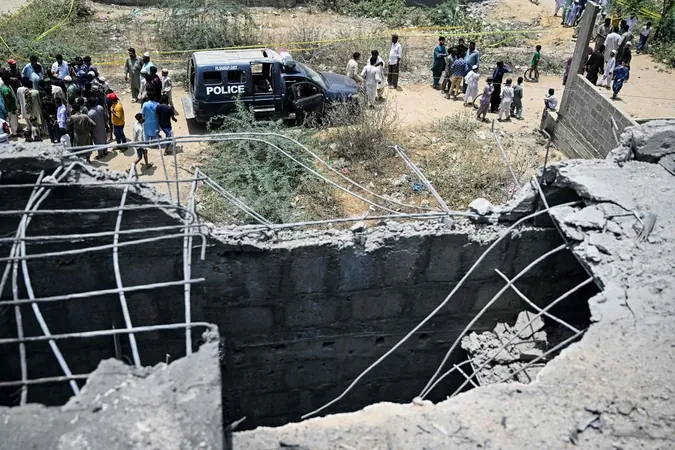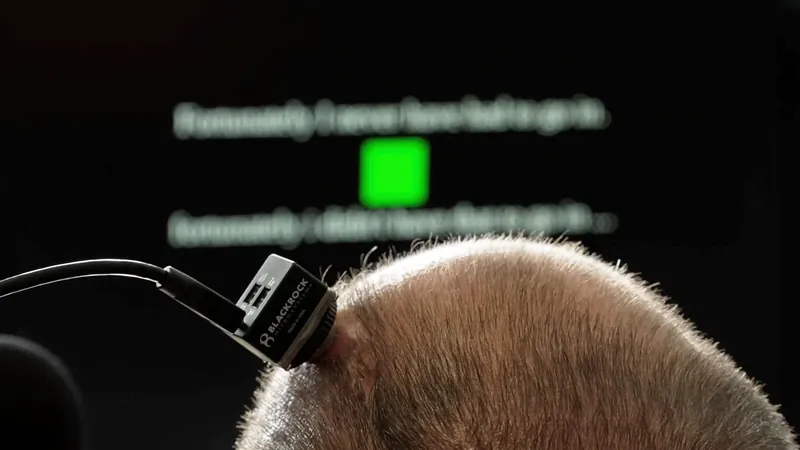
Tensions Soar as India and Pakistan Exchange Drone Strikes: A Grim Showdown
2025-05-08
Author: Nur
In a dramatic escalation of hostilities, India and Pakistan traded accusations of drone attacks on May 8, weeding into a dangerous confrontation that has alarmed the international community.
Pakistan's military claimed to have shot down 25 drones from India, while India countered with a statement alleging that Pakistan had launched aggressive overnight drone and missile strikes, including the destruction of an air defense system in Lahore.
The recent clash follows a bitter exchange that began when India accused Islamabad of orchestrating a deadly attack in Kashmir two weeks prior, a claim Pakistan vehemently rejected. These two nuclear-armed neighbors have a long history of conflict over the contested region, dating back to their partition from British rule in 1947.
Casualties have mounted since May 7, with at least 45 reported deaths amid intense fighting. India’s missile strikes targeted what it claimed were terrorist camps, prompting Pakistan to retaliate with artillery barrages.
India's Defense Ministry reported on May 8 that its forces had neutralized several military targets across Pakistan using drones and missiles, including air defense radars in multiple locations.
In Lahore, residents reported hearing explosions, leading aviation authorities to temporarily shut down operations at the city’s main airport and others across Pakistan, including Karachi.
Amid the chaos, crowds gathered at crash sites, and emergency responders urged citizens to remain calm. One worker implored, "Stay indoors and let the authorities handle the situation."
This latest round of hostilities follows an earlier attack in Pahalgam, Kashmir, that left 26 people dead, largely targeting Hindu pilgrims. India attributed this attack to Pakistan-based terror group Lashkar-e-Taiba, leading to a rapid escalation in threats and diplomatic tensions.
Although Pakistan has denied involvement in the attack, it has called for an independent investigation. Amid the rising tensions, global pressure has increased, with diplomats urging both nations to de-escalate.
U.S. President Donald Trump expressed hope for restraint, while Iranian Foreign Minister Abbas Araghchi planned to meet his Indian counterpart in New Delhi, signaling Tehran's desire to mediate the crisis.
In India-administered Jammu and Kashmir, bombings have devastated civilian lives. Reports from affected towns reveal tragic stories, including one from a local man whose sister witnessed two children caught in the crossfire.
Analysts predict that this cycle of violence may continue, with exchanges of fire becoming commonplace. The Indian Express cautioned that Pakistan’s military is unlikely to back down easily, suggesting that India must remain prepared for further escalatory actions.
Pakistani Prime Minister Shehbaz Sharif vowed to avenge those lost in Indian air strikes, declaring that the nation would respond forcefully to each drop of blood spilt. Meanwhile, Indian Foreign Minister S. Jaishankar warned that any military actions from Pakistan would elicit a "very, very firm response. " The situation remains volatile, and the world watches closely.


 Brasil (PT)
Brasil (PT)
 Canada (EN)
Canada (EN)
 Chile (ES)
Chile (ES)
 Česko (CS)
Česko (CS)
 대한민국 (KO)
대한민국 (KO)
 España (ES)
España (ES)
 France (FR)
France (FR)
 Hong Kong (EN)
Hong Kong (EN)
 Italia (IT)
Italia (IT)
 日本 (JA)
日本 (JA)
 Magyarország (HU)
Magyarország (HU)
 Norge (NO)
Norge (NO)
 Polska (PL)
Polska (PL)
 Schweiz (DE)
Schweiz (DE)
 Singapore (EN)
Singapore (EN)
 Sverige (SV)
Sverige (SV)
 Suomi (FI)
Suomi (FI)
 Türkiye (TR)
Türkiye (TR)
 الإمارات العربية المتحدة (AR)
الإمارات العربية المتحدة (AR)